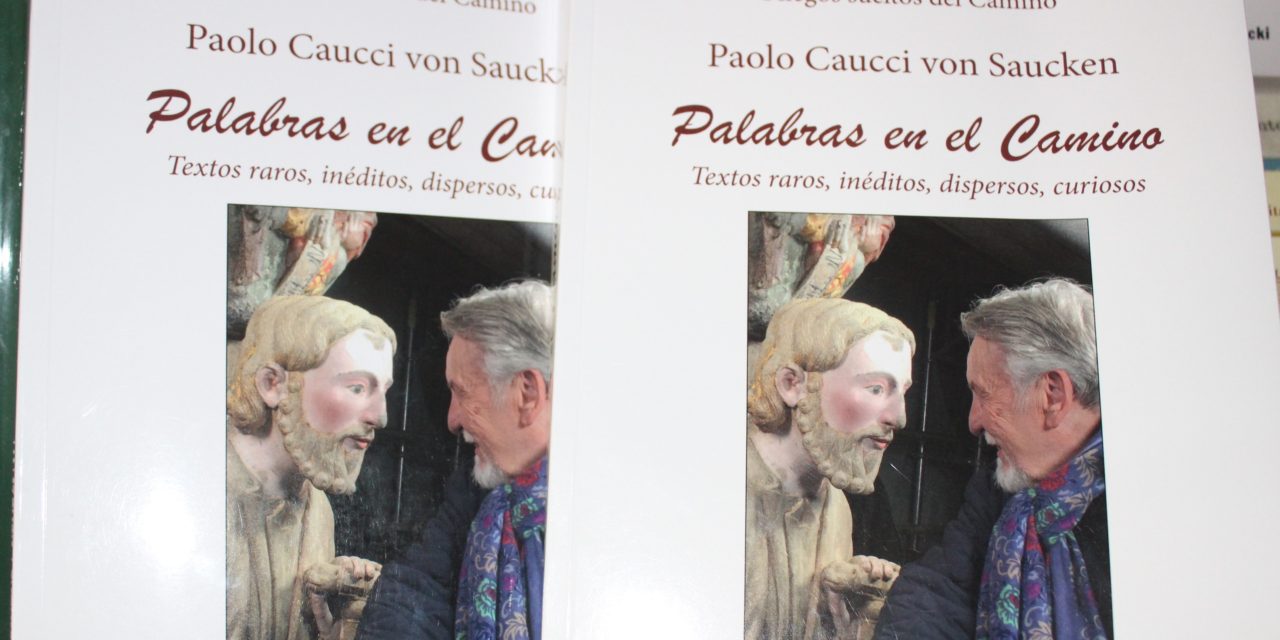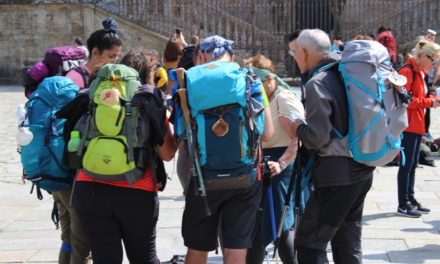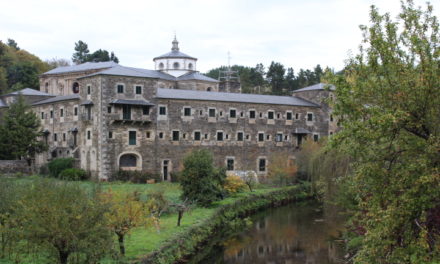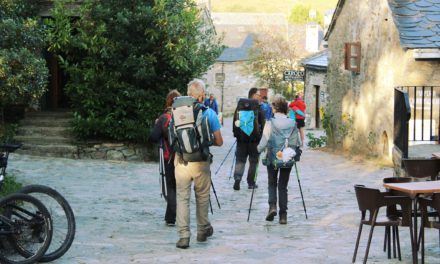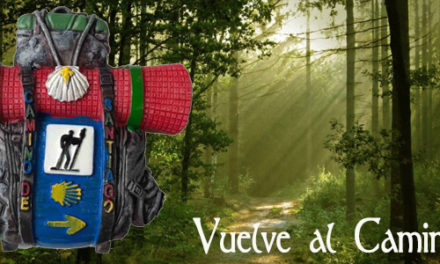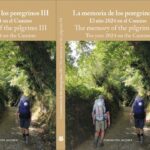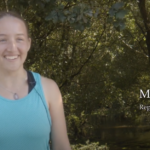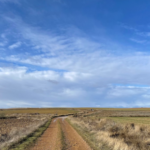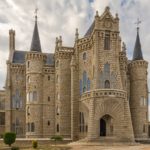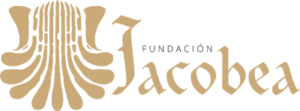“Words on the Camino” is a journey through more than five decades of scattered texts, talks, presentations, introductions… A rigorous and sentimental work that its author carried out during the forced confinement of Covid-19, “that modern plague”. These are therefore scattered texts, but with some elements in common: on the one hand, their not-so-academic nature brings them closer to the personal and autobiographical; on the other hand, those finally selected for the volume are linked to activities or publications that took place in Spain.
As Paolo Caucci says in his introduction, the result that we are now presenting reflects: “a parallel story full of real events that show fifty years of life in archives, libraries, magazines, hospital foundations for pilgrims, meetings, committees. .. A life shared with the people of the Camino, whether they are hospitaleros, pilgrims or researchers”.
This journey, almost a memoir, shows us not only the author’s investigative dimension and his presidency of the International Committee of Experts on the Camino de Santiago, which recently earned him the Medal of Galicia, but also his connection with Jacobean associationism, its refoundation and presidency of the Confraternita di San Jacopo, and, finally, the most human bond with the Way: friendships forged and maintained.
The texts in this book thus take us to the various dimensions of Paolo Caucci’s relationship with the Camino, beginning with his encounter with the city of Compostela as an Italian reader at university and his first Camino as a pilgrim in 1968! We want to emphasize that those memories that the author evokes in some texts today constitute a treasure in understanding what the city and life in Santiago were like at the end of the 1960s, as well as getting to know the people who were linked to the Camino at that time. Regarding these people, Paolo Caucco underlines the crucial role played by his meeting with Manuel Remuñán Ferro, with whom he would maintain a good friendship until his death, but also the importance of his conversations with Cecilio Díaz y Díaz, as well as with Robert Plötz, who until his recent death he was his great friend and companion on trips, congresses and publications. Also in those texts about his early days on the Camino, we recover the names and stories of some pioneers of the current revitalization of pilgrimages to Santiago: Pablo Payo, Francisco Beruete, Antonio Roa and, above all, Elías Valiña Sampedro.
Next to Compostela, there is another place on the Camino that takes on great importance in this book: the hostel of San Nicolás de Puente Fitero and, through it, Castrojeriz and Burgos. This nucleus is presented as a second homeland of Paolo Caucci in Spain and appears in numerous texts dedicated to the recovery and history of the pilgrim hospital of San Nicolás. The story of Saint Nicholas is told as it was: a dream that came true. Through the pages of the book we witness the author’s first meeting with the old Romanesque church in 1968, just a few collapsed walls and no roof – “a hotel of a thousand stars” -, to the thousand vicissitudes and friends who made possible its transfer to the Confraternita di San Jacopo, to the restoration work with the students of the University of Perugia in the early 1990s, to the flood of volunteers from the Confraternita, the support of neighbours and friends from Castrojeriz and Burgos… and, once again, to the friendships established and maintained over time: Pablo Arribas Briones, Eduardo Francés, Ovidio Campos.
In short, the names and memories multiply in the texts and the acknowledgments: pilgrims, hospitaleros, religious, politicians, academics, students and pupils… And, certainly, his wife, Clara Lucattelli, around whom all of us congregate and feel that she is as much a part of this book as Paolo is.

